How to use Driftwood in landscaping – 6 Great Garden Uses
It’s the summer holiday season, and everyone is heading to the shore. Long walks and beach combing often turn up treasured souvenirs of a great vacation that can also be used in a variety of ways in garden projects. Have you ever found something on the beach that is culturally beautiful, you want to use it for something – but what? Here are some ideas for using driftwood in landscaping.
Using Driftwood in the Garden
Driftwood, with its beautiful patina and quirky shapes and sizes, is beautiful on its own or as the base material for creating outdoor garden features.
And as a side note (I find I have to explain this to people all the time), do you know that the natural patina on wood is often just as good a protective coating as any chemical, oil, or other coating that you can spend a lot of time and money applying?
When working with woods that have natural rot and water resistance (ipe, cedar, black locust, etc.), it is really just an aesthetic preference to put a sealant on the wood. If you can live with silvering (which looks amazing next to plants), you can save yourself a lot of time and money and the environment a lot of needless chemicals.
Back to beautiful driftwood ideas for the garden…
Driftwood Garden Use #1- Anchor Water Plants in Place
Use driftwood at the bottom of your pond or water feature to attach water-cleaning plants. Full details of plants and how to accomplish this little project are available at Aquascaping World.
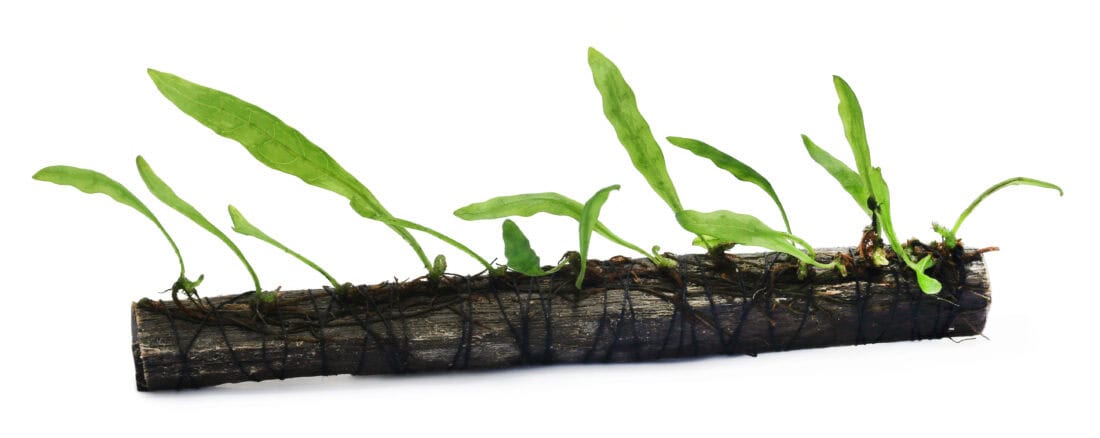
Bogwood Garden Use #2 – Create a Sculpture with Natural Driftwood
Softened by the moving water and beached by the sun and elements, a unique piece of driftwood can make a beautiful sculptural statement. The shapes are organic, and the colors are easy to combine with plants and stone.
#3 – Use Driftwood as a Construction Material for Other Garden Features.
If you live near the water and can easily collect many larger pieces, you might consider using them to make a fence or another garden structure, like an arbor.
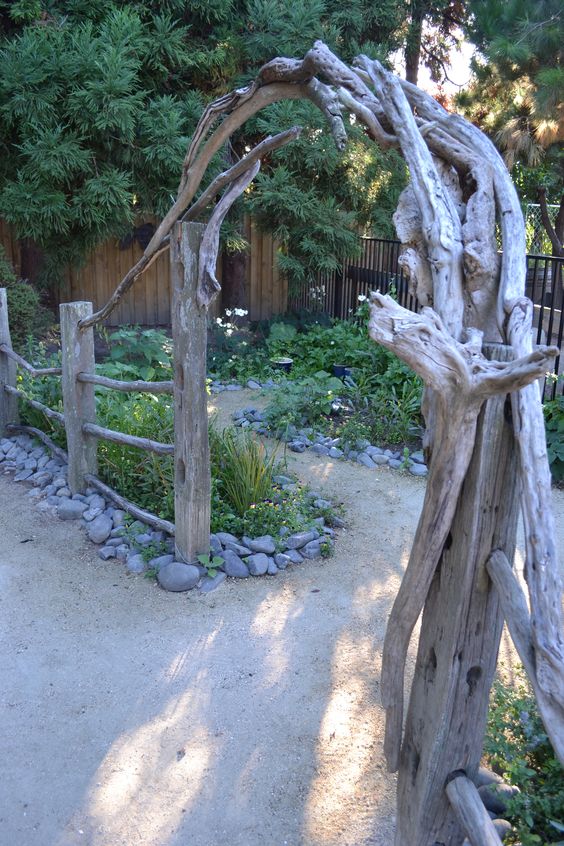
The original image source is unknown. Please contact us for credit.
Driftwood in the Garden Use #4 – Make Art, Chimes, and Creative Collections
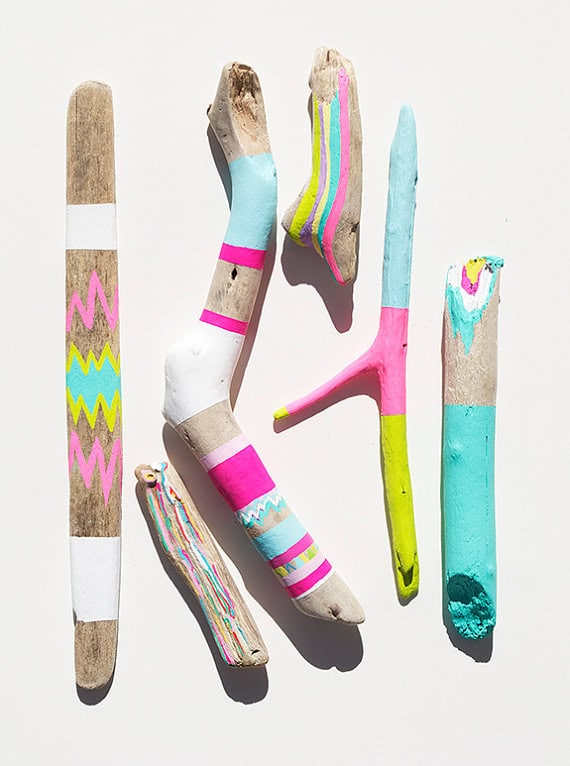
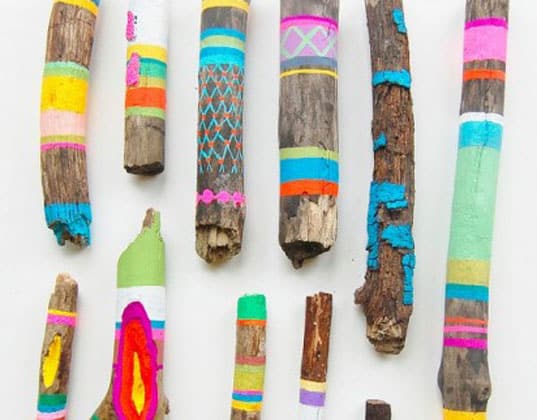
Pay attention while on the beach to also collect beautiful shells or beach glass and make a windchime from your treasures. Here is a good link to help you make your own (there are literally hundreds of tutorials online). Or, if you don’t want to make your own – just enter the words driftwood into the Etsy search bar – you’ll be spoiled for choices.
I am somewhat partial to these fluorescent-painted driftwood pieces – I am not sure where I would put them, but they catch my eye and make me smile. I featured them in my book (Cultivating Garden Style) in a chapter full of ideas about how collectors can live out their ingrained tendencies in their gardens – without sending “I’m a pack rat” vibes through the neighborhood.
Driftwood Landscape Idea #5 – Get imaginative!
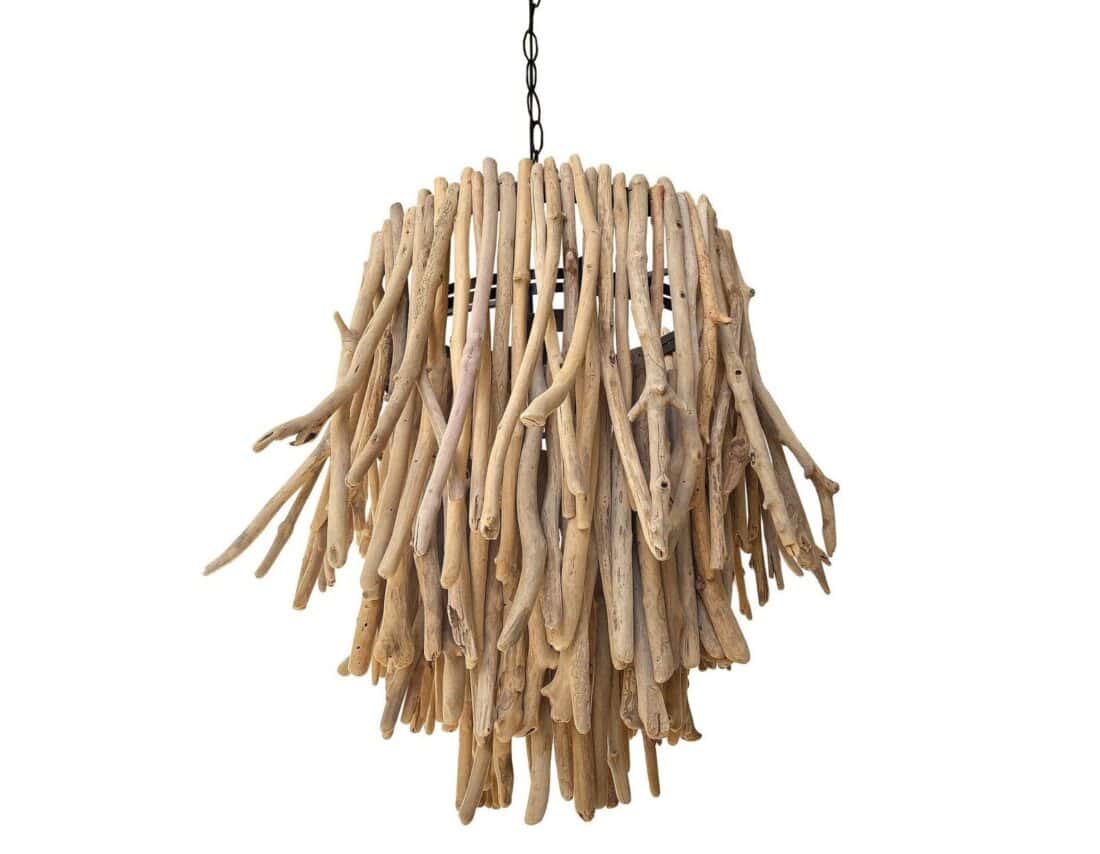
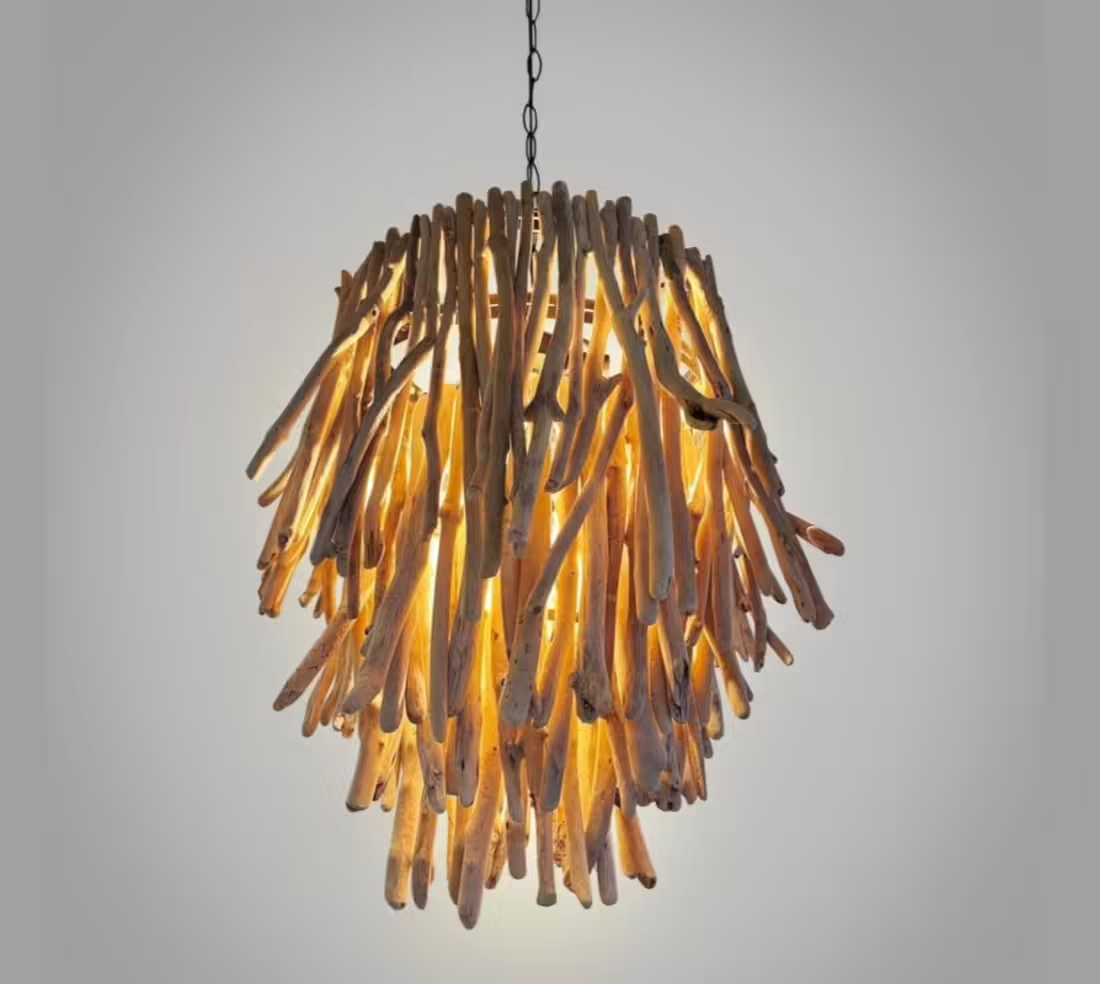
I am convinced that I could make an equally elegant version of this light feature myself with some outdoor lights or maybe even candles (and about 5000 hours of patience that I don’t have). I would use it to illuminate the center of my long picnic table for a breezy summer dinner.
Bonus: #6 Create a New Country – Driftwood Landscape Art and The Rise of Ladonia – a Micronation
Finally, when discussing driftwood, I have to tell you to look up Nimis. This Lars Vilks – the Swedish man who created this impressive driftwood sculpture in Sweden. Ladonia is the small area where these sculptures are located. In 1996, Vilks proclaimed Ladonia an independent country (read more about the origination of Ladonia). He aimed to circumvent building codes for his art, and to this day, there is a cult following of admirers, art lovers, and questioners of the status quo who serve the cause of this micronation. (see Ladonia’s website)
Lars is the kind of person I wish to be and deeply admire – creative, rebellious, smart, and willing to do thing. (‘The Thing’, in this case, was to create a massive structure and maze – a remarkable piece of landscape art – that sparked a long-running legal battle, the creation of a micronation inside Sweden, and a conversation about art and freedom for generations to come).
He was an art professor and self-taught sculptor. Al Qaida had a reward for his assassination (over his cartoons), and he died tragically in 2021 in a car accident (while being escorted by police). I need someone to make the documentary to fuel my fascination.
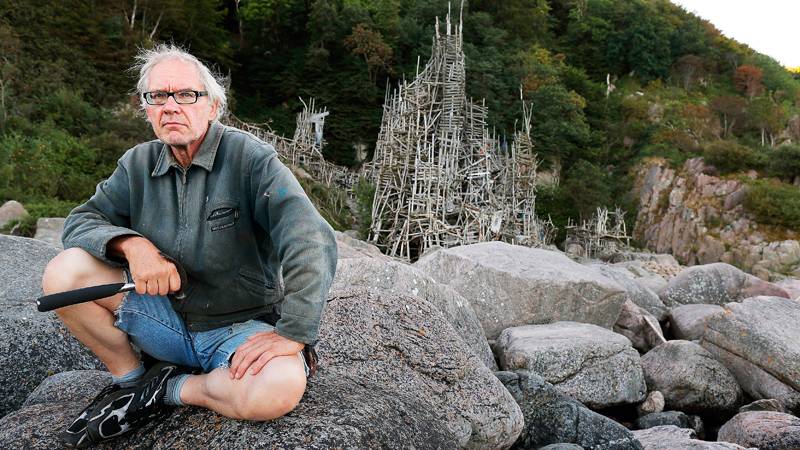
About Ladonia and Nimis and Driftwood
Ladonia, is a county with zero residents but you can become citizen or even nobility for $12 and at the heart of it’s very existence, is the ultimate Driftwood Garden.
Here is a little history of the garden from Ladonia’s website:
When Vilks started to work with hammer and nail at Nimis his ideas were rather vague, but he had in mind to make a meetingplace between theory and practice. The place chosen, the north side of the Kullaberg Nature Reservate, was remote and he could work for almost two years before his piece was discovered.
At that time (in 1982) the County Council reacted and ordered the object that they defined as a building to be removed immediately. Vilks appealed the sentence and started a huge lawsuit which was referred to the swedish Government. The department of agriculture confirmed that Nimis would be removed. Vilks´project was also reported to the police and went on to the district court of appeal and the supreme high court. Vilks lost in the end and was fined.
Nimis was never removed because it was sold in 1986 the New York artist Christo. During the years of legal battles Nimis expanded to a huge piece. More than 100 meters of lengths, towers about 15 meters and 25 tons of wood, Nimis became an impressive sculpture, attracting thousands of visitors who climbed down the slope to explore the construction.
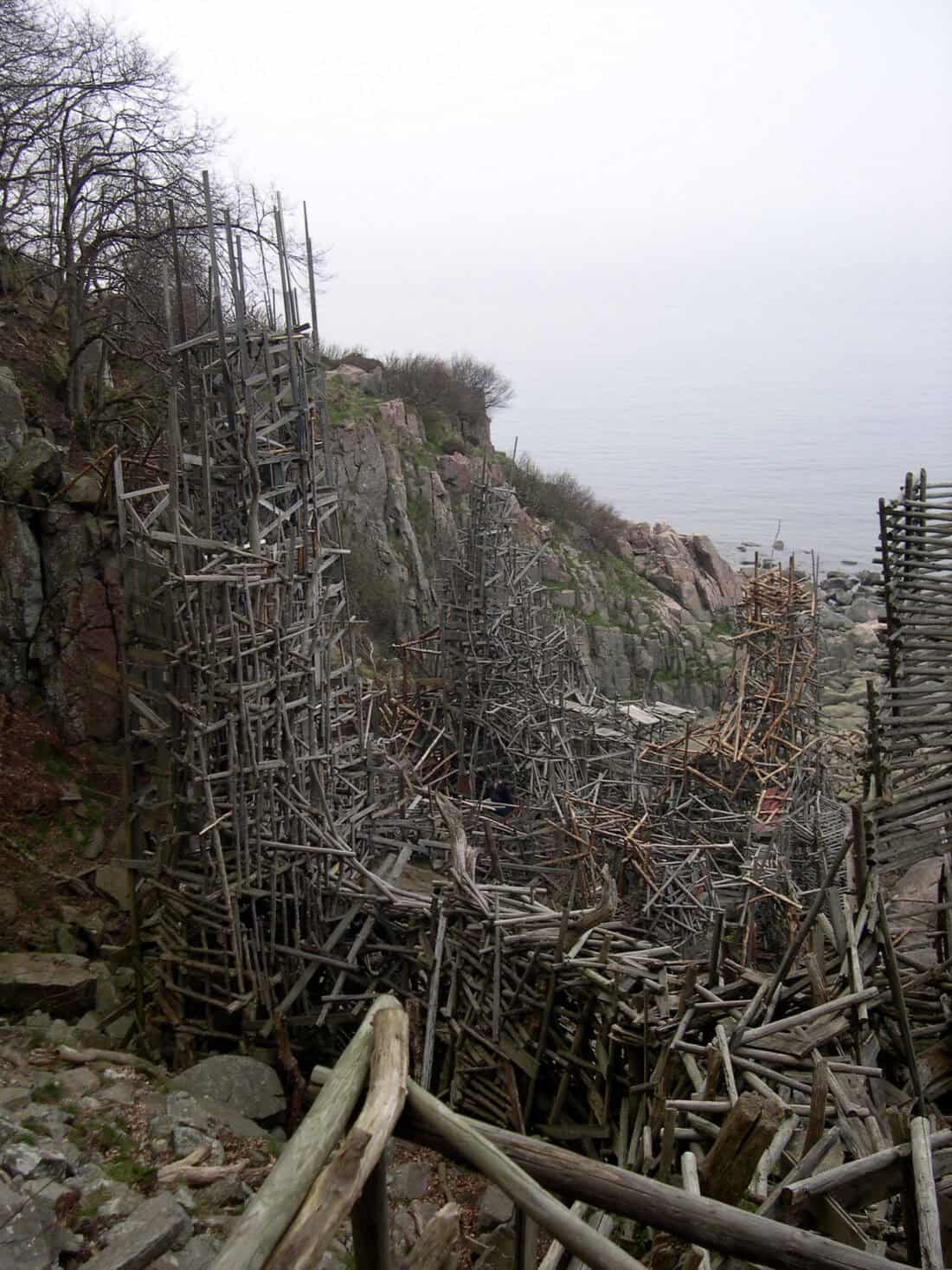
The story of appeals continues to 1996:
Ladonia rised and entered into a new form of time and space. On the 2nd of June the country proclaimed its independence from Sweden – if it ever was occupied; the country was hardly ever discovered. And now Ladonia prosper and develop, creating its own way into boundless freedom.
No one lives in Ladonia; all its citizens are nomads who visit the two chief towns, Nimis and Arx, erected during the period 1980-96.
Taxes are to be paid in Ladonia but not with money. Citizens pay by giving away a part of their creativity.
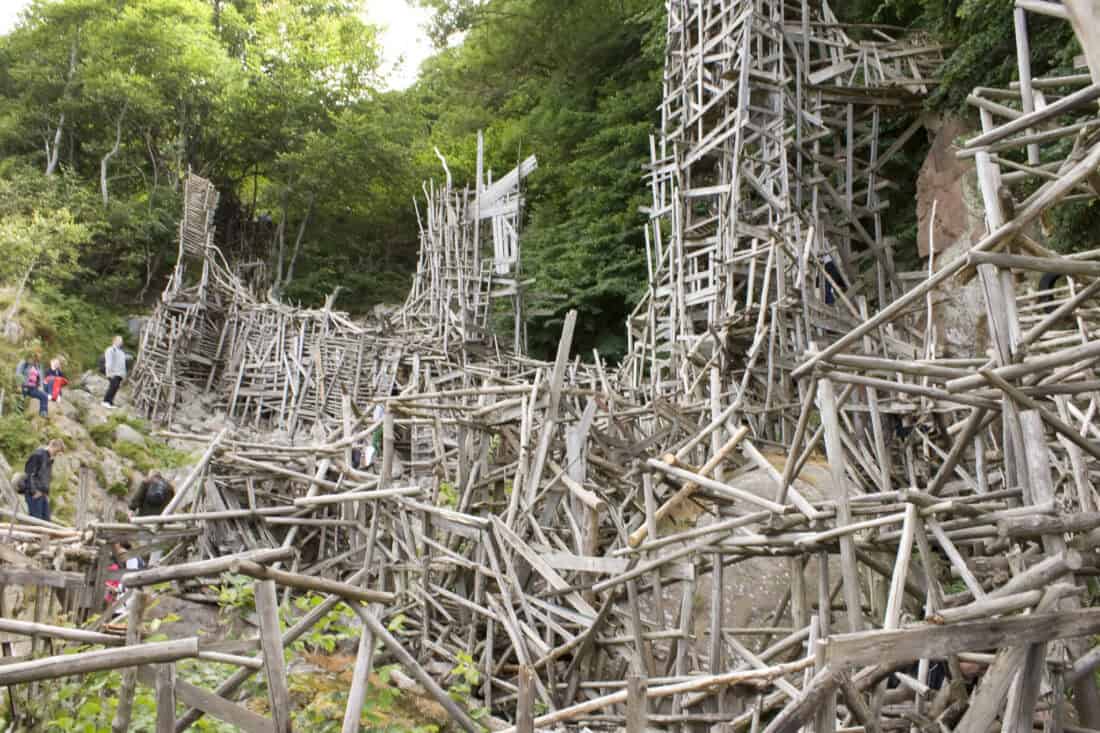
One more little side note: Before you start collecting driftwood, make sure it is legal to do so. In many places, it is not. If you are not careful, you might end up in a decades-long legal battle that ultimately leads to a succession movement. 😜